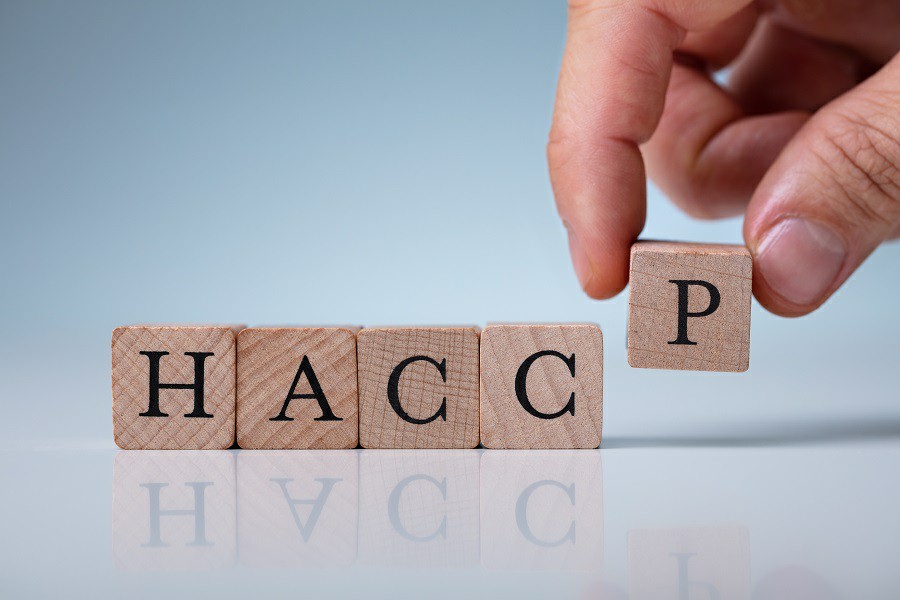HACCP Certification: The Ultimate Guide to Food Safety Compliance in Dublin, Cork, Galway, and Beyond
In the bustling food industry of Ireland, maintaining food safety standards is not just a legal requirement but a commitment to public health. With the rise in consumer awareness and regulatory scrutiny, HACCP certification has become paramount for restaurants, catering services, and food manufacturers across Dublin, Cork, Galway, Limerick, Waterford, and Belfast. This comprehensive guide will delve into the importance of HACCP training, its principles, compliance requirements, and how it can protect your business from foodborne illnesses.
What is HACCP? Understanding its Role in Food Hygiene and Risk Prevention
HACCP stands for Hazard Analysis Critical Control Point. It is a systematic preventive approach to food safety that addresses biological, chemical, and physical hazards through analysis and control. By identifying potential hazards in the food production process, businesses can implement critical control points to prevent contamination. The principles of HACCP help manage risks effectively:
- Conduct a Hazard Analysis: Identify potential hazards that could affect food safety.
- Determine Critical Control Points (CCPs): Establish points in the process where hazards can be controlled or eliminated.
- Establish Critical Limits: Define the maximum or minimum values to be met at each CCP.
- Monitor CCPs: Implement procedures to monitor the critical control points.
- Establish Corrective Actions: Determine actions to be taken when monitoring indicates a deviation from a critical limit.
- Verification Procedures: Verify that the system is working effectively.
- Record Keeping: Maintain detailed records to ensure adherence to the HACCP plan.
The Business Benefits of HACCP Training and Certification
Obtaining HACCP certification offers multiple benefits for food businesses:
- Legal Compliance: HACCP is a legal requirement for many businesses in Ireland. Certification ensures compliance with Irish food safety laws and European regulations, protecting your business from legal issues.
- Improved Food Safety: Training equips staff with the knowledge to minimize risks, preventing food contamination and ensuring customer safety.
- Enhanced Reputation: Being HACCP certified instills trust in your customers, demonstrating your commitment to quality and safety.
- Operational Efficiency: Implementing HACCP principles streamlines operations, reduces waste, and improves productivity.
- Market Competitiveness: Certification can give your business a competitive edge, particularly in a saturated market.
How to Get HACCP Certified: A Step-by-Step Guide for Irish Food Businesses
Achieving HACCP certification involves several crucial steps:
- Enroll in an HACCP Training Course: Look for recognized training providers offering HACCP courses tailored for your industry.
- Conduct a Hazard Analysis: Work with a food safety manager to analyze potential hazards in your operations.
- Develop HACCP Plan: Create a plan detailing your hazard analysis, CCPs, and monitoring procedures.
- Implement Procedures: Train your staff on the HACCP plan and enforce the established procedures.
- Documentation: Keep accurate records of all training, monitoring, and corrective action procedures.
- Request an Audit: Have an external auditor assess your compliance with HACCP standards.
- Obtain Certification: Upon successful audit, receive your HACCP certification.
Online vs. In-Person HACCP Training: Pros and Cons for Different Business Needs
Choosing the right type of HACCP training is vital:
Online HACCP Training
- Pros: Flexibility to complete training at your own pace, accessible from anywhere, often more cost-effective.
- Cons: Limited opportunities for hands-on learning and direct interaction with instructors.
In-Person HACCP Training
- Pros: Interactive learning experience, immediate feedback and clarification of concepts, networking opportunities.
- Cons: Less flexible, may require travel, typically higher costs.
Common HACCP Violations and How to Prevent Them
Awareness of potential violations can help maintain compliance:
- Inadequate record-keeping
- Failure to monitor CCPs consistently
- Lack of staff training or knowledge of HACCP procedures
- Poor maintenance of the HACCP plan
Preventing these violations involves regular training updates, audits, and fostering a culture of food safety in your organization.
How HACCP Compliance Enhances Business Reputation and Customer Trust
In today’s food sector, consumers are increasingly aware of food safety practices. HACCP compliance not only safeguards public health but also enhances your business’s reputation:
- Proper certification can lead to positive reviews and repeat customers.
- Transparency in safety practices builds loyalty and trust.
- Effective hazard management reinforces your brand's commitment to quality.
How to Conduct a HACCP Audit and Maintain Compliance
Regular HACCP audits are essential for ongoing compliance:
- Review Documentation: Check all records and procedures against your HACCP plan.
- Assess CCP Monitoring: Ensure staff are monitoring CCPs correctly.
- Evaluate Corrective Actions: Review how well deviations are handled.
- Staff Training: Conduct periodic training refreshers to maintain knowledge levels.
Keeping up with these audits ensures that your operations remain compliant and efficient.
Conclusion & Call to Action
In conclusion, HACCP training and certification are not merely tools for compliance but essential strategies for protecting your business and public health. With the right training, you can ensure food safety, enhance your reputation, and stay ahead in the competitive Irish food industry.
Ready to take the next step? Enroll in the best HACCP training course in Ireland today and secure your business’s future!
For more information and to register, contact us at [email protected] or visit our HACCP training page for details.



 349,500 Offered Certificates
349,500 Offered Certificates
 24/7 Online Training
24/7 Online Training
 Money Back Guarantee
Money Back Guarantee
 Fully Accredited Courses
Fully Accredited Courses
